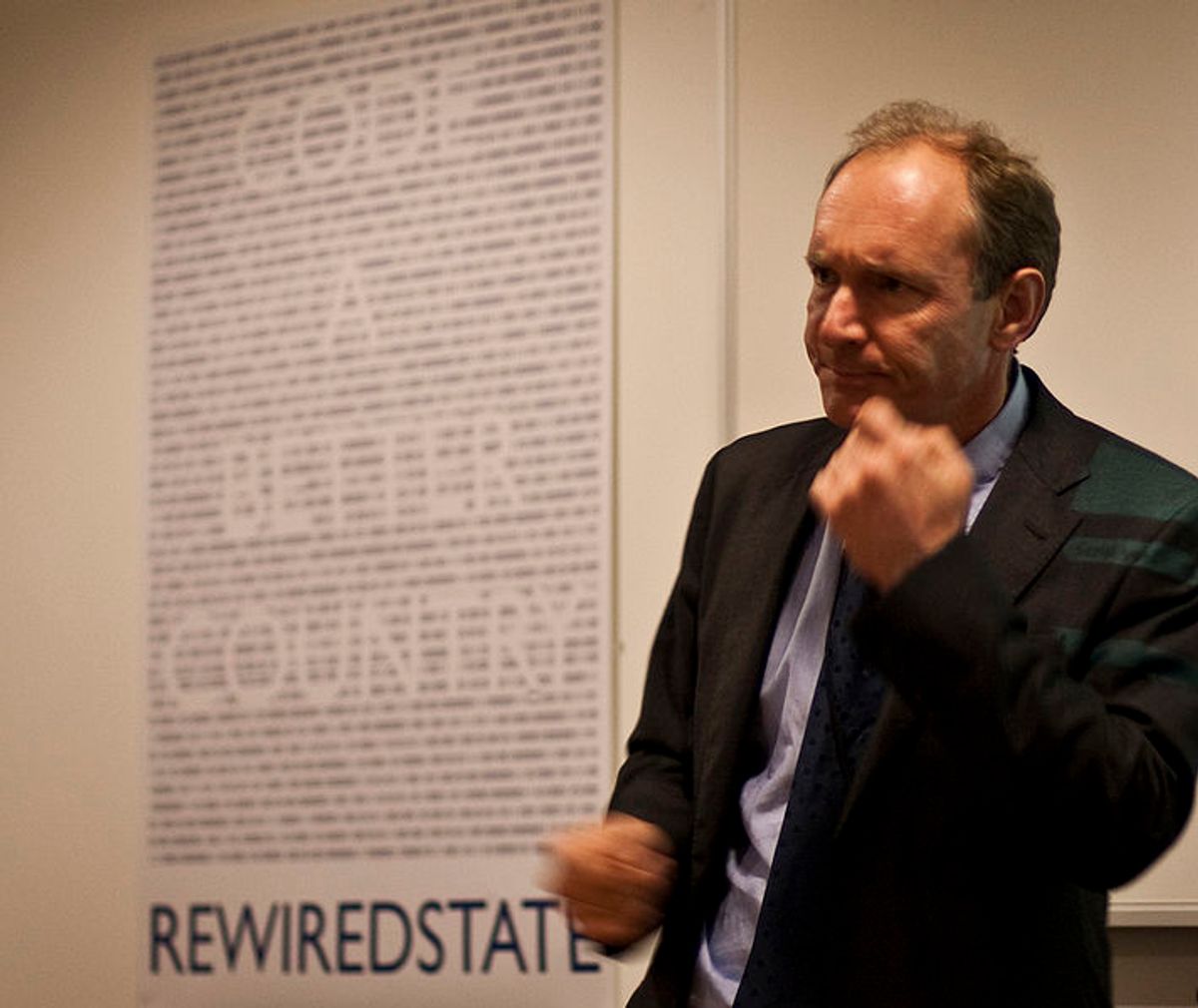The original Magna Carta was written 799 years ago, in June of 1215, by a group of English barons who wanted to protect their rights and property from the tyranny of the monarchy. Though the document was nullified by the Pope, and failed to solve issues between the king and the barons, the concept has continued to be influential. (The Magna Carta even helped shape our own Constitution and Bill of Rights.)
On the 25th anniversary of the World Wide Web's inception, creator Sir Tim Berners-Lee has said he would like a similar document to protect the Internet from tyranny of government and corporate influence. He has been a loud critic of both American and British Internet surveillance programs; Last week at Edward Snowden's South by Southwest panel, Berners-Lee personally thanked the former NSA contractor for his surveillance whistleblowing.
The document would address privacy, ethics, copyright, free speech and responsible anonymity. "These issues have crept up on us," Berners-Lee told The Guardian. "Our rights are being infringed more and more on every side, and the danger is that we get used to it. So I want to use the 25th anniversary for us all to do that, to take the web back into our own hands and define the web we want for the next 25 years."
According to The Next Web, an organization called The Web We Want is taking up the project.

Shares